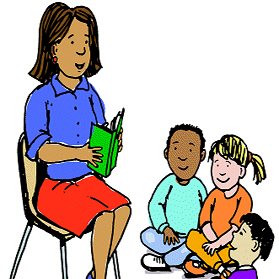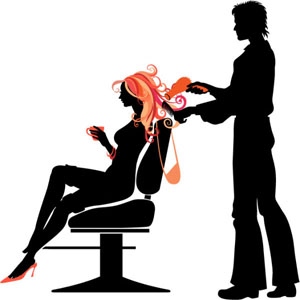
EdnaKrabappel
Chicago, IL
Female, 32
From ’03-‘06, I was a special education teacher in Philadelphia as part of Teach for America. I taught children with mild to moderate special needs (primarily learning disabilities, attention deficits, cognitive disabilities, and behavioral problems) in grades 2 - 8 in all academic subjects. I saw a lot of things and learned a lot...especially the art of patience.
(1) Mandatory preschool for all children. The importance of early intervention to identify and address children's learning and social-emotional problems has been established in research. Despite this, there remains a lack of access to education for young children who may need it the most. (2) Equalized funding for public schools. I would abolish the current property tax-based system and provide additional funding for public schools in low-income communities. Otherwise, there is very little hope of making any significant impact on the achievement gap between children in high-income and low-income communities. (3) Improvements to the process of assessing children with special needs. Most children with special needs are still required to take state and district assessments (high-stakes tests) based on their chronological grade level, despite the fact that they may be 2 or more years behind their peers academically. This testing is a complete waste of time and tax-payer money and provides utterly useless information about the child's skills as it is designed to measure their progress based on standards which are beyond their current program of instruction.
When the parents and the school special education team disagree a legal Due Process case ensues. Parents and school officials sit down with a mediator, and then an Administrative Law Judge if mediation doesn't work, and speak their case - complete with witnesses, experts, and lots of research and documentation of similar cases. This costs A LOT of money for everyone involved, but given that their pockets are usually deeper, schools often prevail - regardless of whether they're in the right or not. It's more common for parents to sue schools because they're unhappy with the IEP team's recommendation rather than the schools suing parents. While the adults fight it out, the child's current placement must be maintained, even if it's woefully inadequate, until the proceedings are finished. So while one side always wins....I'd say the child typically loses in these situations.
No. Typically I received IEPs (Individual Education Plans) for my students within the first week of classes. The IEP is a legal document which describes (in varying detail) the student's disability/ies, areas of strength and weakness, their current level of performance in areas of deficit, academic/behavioral/social goals for them to achieve throughout the next year, and their specific placement in a special education and/or regular education classroom. I was legally mandated to uphold the requirements of the IEP and help the students reach their IEP goals, providing documentation of their progress over the course of the school year.
It is a choice and, in my opinion, anyone who teaches special education likely has a lot of patience, caring, and a belief that with the right help, anyone can enjoy school and find success. For me, the decision was part idealistic and part practical. My mother was a teacher's assistant in a special education classroom while I was in elementary school and I would come to visit her often. Her patience and caring for the students with which she worked was inspiring to me and I was proud to have a chance to work with students in a similar way. I truly believe that school should be a place that all children enjoy and want to come to, so I found teaching special education an opportunity to help students who are struggling academically or behaviorally. The practical part of my decision was the fact that there was a greater need for special education teachers and so it was easier to get a job in the school/community I desired. I don't know if this is a larger trend or if it's still the case now, but when I was seeking a job, there was a high need for special education teachers.
Court Reporter
 How do you transcribe when people in the courtroom are talking over and interrupting each other?
How do you transcribe when people in the courtroom are talking over and interrupting each other?
Hairstylist and Makeup Artist
 What's the grossest hair ailment you ever saw?
What's the grossest hair ailment you ever saw?
NHL Team Marketer
 Is fighting in hockey good or bad for the game?
Is fighting in hockey good or bad for the game?
I sobbed at the end of this movie. It was heartbreaking to see the parents and children become so engaged in the hope for a better education and a better life, only to have their fate decided by a lottery drawing. I don't know if more charter schools is the answer - we need more GOOD charters, not just more charter schools - but I hope that Race to the Top and other education initiatives help increase access to quality education for ALL students, not just the children whose parents can afford to pay for it.
Yes, of course, all the time. Kids can be extremely cruel to one another. It is essential to create a safe environment in your classroom and set the expectation that "We just don't speak to each other that way in here." As much press as bullying and school violence have been getting lately, this is clearly becoming more and more an issue. Teachers must be aware of how children are treating each other and show zero tolerance for bullying and threats of violence. No child should die or be driven to suicide because I failed to make them feel safe in my classroom.
Good question! In my time teaching in Philadelphia I saw some pretty crazy stuff. Physical fights and generally bizarre behavior were not uncommon. The craziest thing I personally witnessed was a child threatening me and some of his peers with a pair of scissors. He was affected by schizophrenia and heard voices. When he was not in his medication his symptoms were quite bad and he often accused peers and I of saying things we never said. He rarely responded violently, but he was also somewhat alienated by his peers, and on this occasion he seemed to hit a breaking point. It was very intense and scary, but luckily no one was seriously injured. And I learned my lesson - only safety scissors in my special education class after that! I kept the big scissors locked in my desk drawer.
-OR-
 Login with Facebook
Login with Facebook (max 20 characters - letters, numbers, and underscores only. Note that your username is private, and you have the option to choose an alias when asking questions or hosting a Q&A.)
(A valid e-mail address is required. Your e-mail will not be shared with anyone.)
(min 5 characters)
By checking this box, you acknowledge that you have read and agree to Jobstr.com’s Terms and Privacy Policy.
-OR-
 Register with Facebook
Register with Facebook(Don't worry: you'll be able to choose an alias when asking questions or hosting a Q&A.)